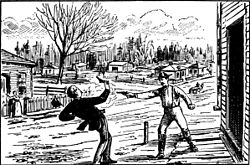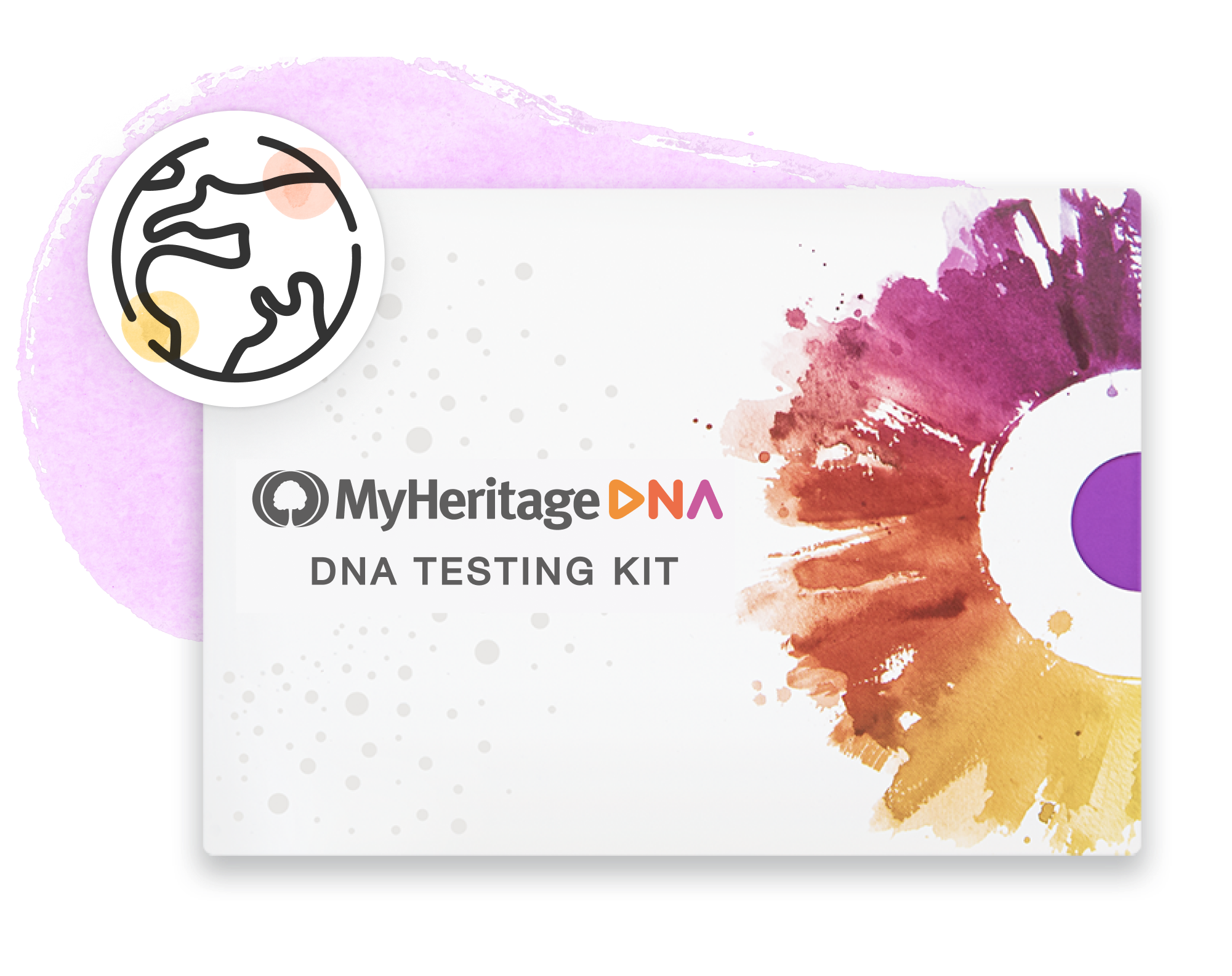Researching family history can sometimes result in the discovery of information the researcher may find concerning or upsetting. While researching one's roots generally produces a great sense of satisfaction and has been shown to increase one's overall well-being, when you dig deep enough, it's highly likely you will eventually come across unwelcome evidence of evil deeds, dark family secrets and ancestors' pain-filled lives[1].
And then there is the stress of research failure or the frustration that family research can generate. Sometimes it proves impossible, or at least dauntingly difficult, to locate a key piece of information or to plug an important gap in an ancestor’s story. However much we try we just can’t seem to fit the puzzle pieces together.
In this article we’ll explore different kinds of negative issues that might arise from your family research and consider what do do about them.
Research your ancestors on MyHeritage
Sources of stress or other negative feelings

A recent 2023 study, based on surveys and interviews, found that almost two in three family historians experienced distressing emotions arising from their research. These included anxiety, shock, sadness, anger or confusion[2].
Sources of these negative feelings when conducting genealogical research include:
- Frustration at not being able to find missing genealogical information that the family historian believes is very important.
- Ironically the reverse--feeling overwhelmed by the amount information discovered which left the researcher confused or frustrated about how to "pull it all together".
- Finding negative or painful information about an ancestor, such as learning that they had been involved in criminal activity or perceived unacceptable social behaviour such as desertion, bigamy, producing illegitimate children and so on.
- The researcher's concern that they are unreasonably intruding on other people's privacy, even including cases where the person they are researching is long since deceased.
- Taking a DNA test only to make an unwelcome discovery, for example that the researcher or other family member is not biologically related to their presumed parents or that they had likely inherited a genetic disorder.
Research Roadblocks

If research roadblocks cause stress the first thing is to remember that by its nature genealogical research ebbs and flows. Sometimes the family historian will make rapid progress, but other times progress can slow to a crawl. Unless you are very lucky indeed gathering and checking all the information required to build a detailed, accurate family tree will take significant time and effort. So when research becomes tough go easy on yourself.
Stay open to exploring additional sources of help. MyHeritage has an enormous range of powerful resources to explore. When using these resources consider whether there's new search strategies you can try. Perhaps there's a different spelling of a name to consider; or the location or time period you have been focussed on needs to be broadened. Maybe there are other family members or friends whose knowledge you can tap into. Consider whether a professional genealogist, with local knowledge or expertise in a specific field, could be of assistance.
If you are genuinely feeling it's all too much be prepared to take a break from your research, whether that's a few days, a few weeks or even longer. When you do resume your efforts set realistic expectations for yourself. Stay positive, taking satisfaction in what you have already achieved and how much you have learnt and shared. Celebrating your past successes is a great way to keep motivated.
Discovering a disreputable ancestor or one who lived a life of hardship

Finding that an ancestor has done something bad or that has suffered great hardship can be difficult and upsetting. That's especially so if that ancestor in question is someone that you or other family members have known personally or whom they have always revered.
There are some practical steps to take when dealing with unpleasant discoveries in family history. First, accept your negative feelings. You are entitled to feel surprise, anger, sadness, or perhaps even a sense of shame. But equally, recognize that you are not responsible for an ancestor's actions or the predicament in which they found themselves. In any case these realities are in the past and therefore cannot be affected by anything you do or feel today.
Second, try to put the ancestor's actions in their personal, social and historical context. There may have been external factors that help explain, while still not excusing, criminal actions or their distressing circumstances. Family relationships are frequently complicated and, for example, it may be both parties in a marriage contributed to its breakdown or other painful outcomes. Values, attitudes and what was considered acceptable behavior or lifestyle have varied enormously over time and among different countries and cultures. It's unwise to judge everything that happened decades or centuries ago from the perspective of a 21st century individual living a very different life in a very different society.
Third, be willing to look at your ancestor as a whole person. It's generally not in human character to be all good or all bad--maybe there are positive features of a disgraced ancestor that go some way to compensate or counterbalance whatever evil they did. It may even be that the bad action was a one-off and out of character. If, on the other hand, the ancestor suffered severe hardship, illness or some other source of pain you may be able to draw comfort or strength from how they were able to overcome their adversities.
Ultimately, such unpleasant discoveries should not dissuade you from continuing your research. Nor should it be allowed to detract from its valuable contribution to understanding the origins and drivers of your family's unique story.
Whether or not you tell your relatives about something you have discovered about their ancestors that may upset them, including unexpected DNA results, is a difficult and personal decision. Could not sharing certain facts in family history be the more appropriate course of action in specific circumstances?

There are a number of factors that you may want to take into account:
- The nature of the information. Is it so significant that could permanently damage your relatives' own sense of self, their reputations or their relationships with others? Or is it just going to be initially embarrassing or uncomfortable for them to hear?
- The relationship you have with other family members who will be impacted by the news. Are these inter-personal relations positive and strong? Will these family members be receptive to hearing this information from you and understand your motives in sharing it?
- Your relatives' own emotional state. Have they ever had to confront difficult news and, if so, how did they respond? Age can be a factor here, for example in deciding whether to reveal to an elderly relative that their lifelong understanding of who their parents or siblings were is incorrect.
If you do decide to share a painful discovery after considering all these factors W Scott Fisher, in the Knowledge base article already referred to[1], makes a very useful suggestion: stick to the facts. There's no need to embellish stories nor infer specific details when they cannot be definitively established. Rather, where there is still uncertainty on what happened or the circumstances in which an event occurred this uncertainty should be explicitly acknowledged.
Finally consider carefully how, and when, to break the news. For example you might wait until there is privacy and you can minimise the chances of distractions or interruptions. Try to anticipate the questions your family member(s) might have and stand ready to answer these questions as best you can. Have readily available the factual material on which you have based your discovery and share it with others if they want to see it. Accept that, like you, your family members might initially experience a range of negative emotions and suggest they consider some of the coping strategies described above.
Explore more about how to deal with unwelcome family history discoveries
- Dealing with Skeletons In Your Family Closet on the MyHeritage Knowledge Base
- We Solved the Mystery of Our Ancestor’s Parentage — and Uncovered a Shocking Secret Along the Way on the MyHeritage Knowledge Base
- A 2023 article, Family History Research and Distressing Emotions examines in detail how exploring family history can unleash strong emotions, both positive and negative. The article includes an extensive list of academic reference material which provides further insights into many different impacts on the individual of researching their family history.


